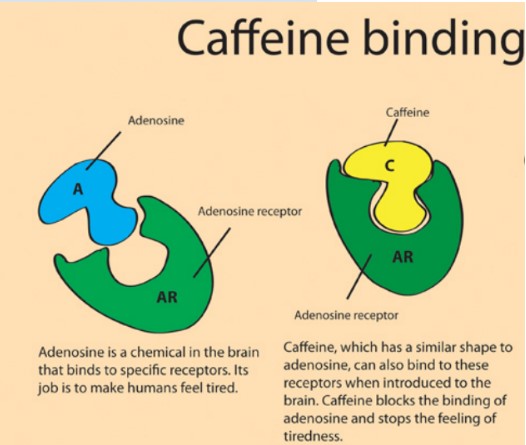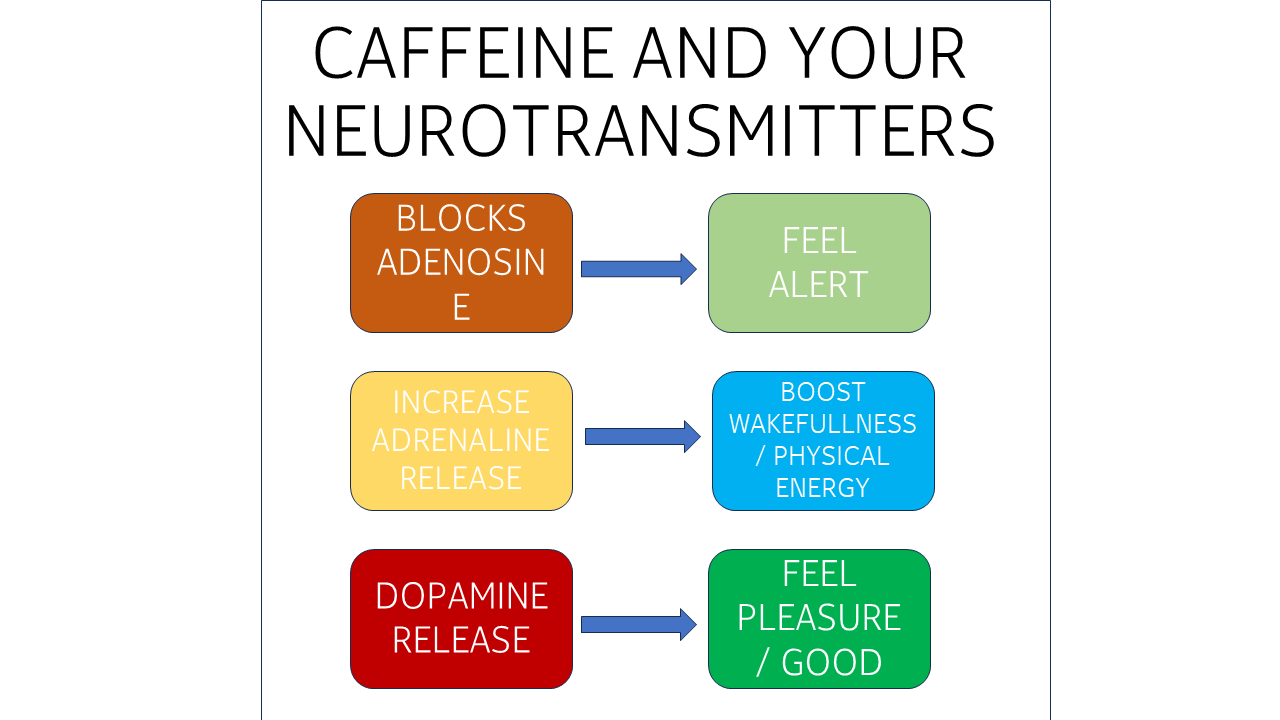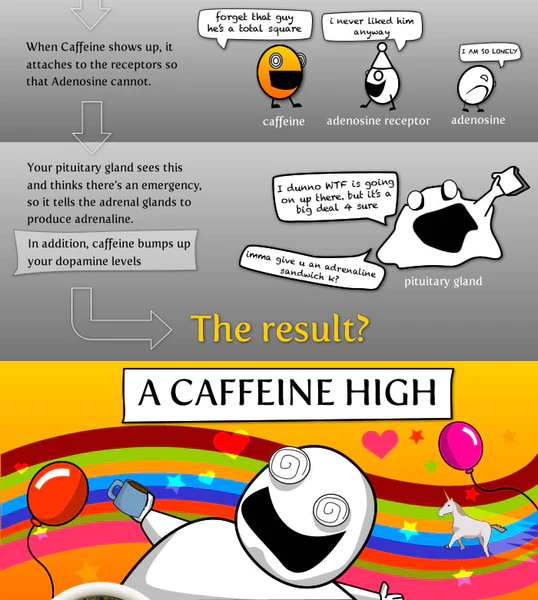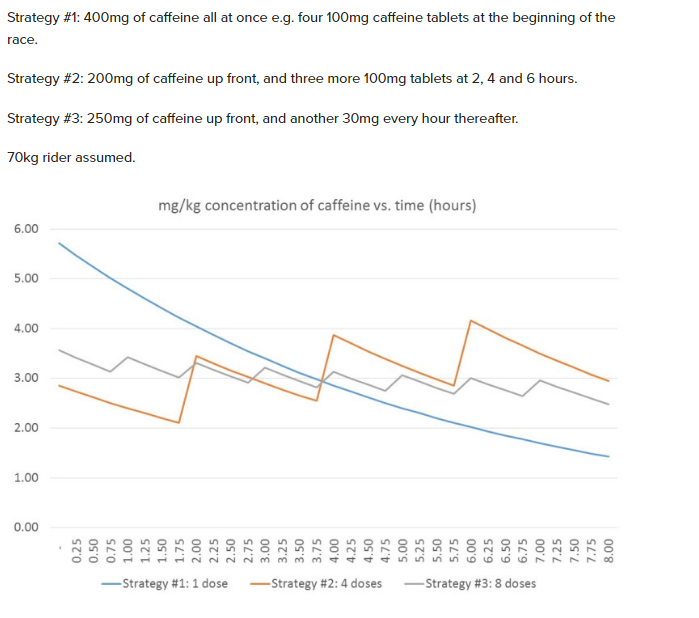In the world of performance-enhancing substances, few have captured the attention and devotion of athletes and everyday enthusiasts quite like caffeine. From the first cup of morning coffee to the meticulously timed energy gels during a marathon, caffeine has become an integral part of our lives, particularly in the pursuit of sports excellence.
But what is it about caffeine that makes it such a beloved ally for athletes and fitness enthusiasts alike? How does it work its magic, both on our minds and bodies? And perhaps most importantly, how can we harness caffeine’s potential to enhance our performance during races and other physically demanding challenges?
In this blog, we’ll dive deep into the inner workings of caffeine, exploring the science behind its effects on alertness and endurance. We’ll uncover the recommended dosages and strategies for leveraging caffeine to our advantage during races and workouts. Whether you’re a seasoned athlete or just someone who enjoys a daily cuppa of Coffee, read on through the caffeine-fueled world of performance enhancement. By the end, you’ll have a clearer understanding of how to make caffeine work for you and your fitness goals. So, let’s embark on this caffeinated adventure and unlock the secrets of better performance, one sip at a time.
- How Caffeine Works
- How Caffeine helps in Sports Performance
- How much to consume
- Races and Caffeine Intake Strategy
How Caffeine Works
- Adenosine and Sleepiness: Throughout the day, a substance called adenosine gradually builds up in your brain. Adenosine is associated with feelings of drowsiness and the need for sleep. Think of it like a “sleepy signal” that your brain sends.
- Caffeine’s Arrival: Caffeine is similar in structure to adenosine, and your brain can’t tell the difference between them. When you consume caffeine, it enters your bloodstream and travels to your brain.
- Adenosine Blockade: Once in the brain, caffeine attaches to the same receptors that adenosine would normally bind to. However, caffeine doesn’t send the sleepy signal that adenosine does. Instead, it essentially “blocks” adenosine from binding to these receptors. By blocking adenosine, caffeine keeps you awake and alert.

.
- Fight-or-Flight Response: Your body has a built-in alarm system called the “fight-or-flight” response. When you encounter a stressful or challenging situation, your body prepares to deal with it by releasing a hormone called adrenaline
- Sympathetic Nervous System Activation: Caffeine’s adenosine-blocking action triggers a series of events. It stimulates your sympathetic nervous system, which is responsible for activating the fight-or-flight response. This system sends signals to various parts of your body to prepare for action.
- Adrenal Gland Activation: Within this response, caffeine specifically prompts your adrenal glands, which sit on top of your kidneys, to release more adrenaline into your bloodstream.
So, caffeine indirectly boosts adrenaline by blocking adenosine, which sets off a chain reaction in your body’s stress response system. This is why caffeine can make you feel more awake, alert, and ready for action when you need a quick energy boost.
- Additionally, by blocking adenosine, caffeine promotes the brain’s production of two natural stimulants: dopamine and glutamine, which help boosts our mood and even reduce the risk of depression

How Caffeine helps in Sports Performance
Now, we understood how caffeine regulates various neurotransmitters. How it helps in Sports Performance is as follows :
- Effects due to decreased Adenosine
-
Reduced RPE : Adenosine is a neurotransmitter that promotes relaxation and sleepiness, but it also plays a role in modulating pain perception. When you consume caffeine, it interferes with adenosine’s ability to dampen pain signals. Essentially, it blunts or reduces the signals telling your brain that your body is working hard. So, it lowers the Rate of Perceived Exertion(RPE).
-
Increased Endurance: When you perceive less effort, you may be able to push yourself harder and continue exercising at a higher intensity or for a longer duration. This can lead to improved endurance and performance, whether you’re running, cycling, or participating in other sports.
-
Enhanced Focus: Caffeine’s ability to improve alertness and concentration can divert your attention away from pain. When you’re more focused on a task or activity, you may be less aware of discomfort or pain.
- Effects due to Increased Adrenaline: Adrenaline has several effects on your body, including:
- Increased heart rate: This pumps more blood to your muscles and brain, preparing them for action.
- Dilated airways: This allows you to breathe more easily and take in more oxygen.
- Enhanced glucose release: Adrenaline encourages your liver to release extra glucose (sugar) into your bloodstream, providing a quick energy boost.
- Heightened alertness: Adrenaline sharpens your focus and makes you more alert.
- Release of Neurotransmitters: Caffeine also stimulates the release of other neurotransmitters, such as dopamine and norepinephrine. These neurotransmitters are associated with increased alertness and mood. They can have a pain-relieving effect by enhancing your overall sense of well-being and reducing the emotional aspect of pain.

How much to consume
- As per the studies, improvements in physical performance tend to become evident when caffeine is consumed in doses surpassing approximately 200mg (equivalent to around 3mg per kg of body weight).
- Recommended Dosage: 3 to 6 mg per kg of body weight
- Best source of caffeine is caffeine pills or caffeinated gels.
- Notes:
- Caffeine has half life of 5 hours and it takes one hour to reach its peak impact
- Food intake also impacts the absorption of caffeine. Best response is fasted state. To be experimented individually.
- Coffee is not a good source if one wants precision. The amount of caffeine in coffee depends a lot on beans, roasting mechanism (light roast has more caffeine compared to dark roast), brewing method.
Races and Caffeine Intake Strategy
Pre-Race Planning:
- Testing and Familiarization: Prior to race day, test caffeine strategies during your long training workouts to ensure you tolerate it well and understand its effects on your body.
- Individualized Dosing: Determine your optimal caffeine dosage. This varies from person to person. A common guideline is 3-6 mg of caffeine per kilogram of body weight. For example, if you weigh 70 kg, this would be 210-420 mg of caffeine. Start at the lower end of this range if you’re not sure about your tolerance.
- Timing: Plan when to consume caffeine. Most experts recommend taking it about 30-60 minutes before the race begins to allow it to peak in your system as you start the race.
During the Race
- Caffeine Source: Choose a reliable and familiar source of caffeine, such as energy gels, chews, or a caffeinated sports drink.
- Hydration: Ensure you consume caffeine with water or a sports drink to stay hydrated. Dehydration can amplify caffeine’s side effects.
- Split Dosing: If your race is particularly long, consider splitting your caffeine intake. For example, take half your planned dosage before the race and the other half during the race.
Post-Race Recovery:
- Avoid Overconsumption: After the race, avoid excessive caffeine intake, as it can interfere with post-race recovery and sleep.
- Rehydrate: Rehydrate and refuel with a balanced meal or recovery drink.
Caffeine Dosage Suggestion : Ironman 70.3 and Full Ironman
As Ironman 70.3 and Full Ironman are long duration races, it becomes important to consume caffeine at regular intervals during the race for optimal benefit. There are various approaches which one can explore
- Approach 1 : Take full dosage (mega dosage - 6mg per body weight) before the race. For full ironman, renew it after 6 hours.
- Approach 2 : Take full dosage when needed. Eg, if bike is the struggle, take full dosage in the bike leg.
- Approach 3: Take micro dosage throughout the race, 50-75mg per hour.
- Approach 4 : (My preferred)
- Take Full Dosage (300mg - 400mg (4-6)x BW) after bike start
- Take half dosage (100mg 1.5x BW ) every two hour
- Advantage : Not taking too early will avoid going too hard in the start.

Good Resources
- TrainerRoad podcast on Caffeine and Racing (17 min)
- Image reference: https://www.trainerroad.com/forum/t/caffeine-half-life-and-performance/15951/8